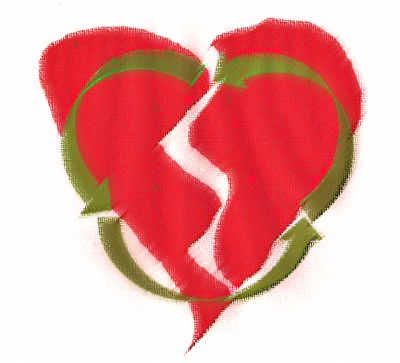 Leaders lead from their experience and knowledge, which makes leadership both an art and a science. Many leaders are excellent with the science of leadership. They are familiar with the latest trends, models and research in leadership. They also know how to teach the science of leadership. However, where they often struggle is in the art of leadership.
Leaders lead from their experience and knowledge, which makes leadership both an art and a science. Many leaders are excellent with the science of leadership. They are familiar with the latest trends, models and research in leadership. They also know how to teach the science of leadership. However, where they often struggle is in the art of leadership.
The art of leadership is the part that is shaped and influenced by experience. One aspect of the experience that influences leadership is the wounds the leader has experienced in life.
We all have been wounded in life and will be again as long as we are in relationships. Whether or not we are aware of it or admit it, those wounds will influence how we relate to others.
Wounds influence leadership in one of two ways. Either you have experienced healing from your wounds, and they now serve as stepping stones to making you into a better leader; or wounds have not been addressed and they are impacting your leadership in a negative way. Either way, your leadership is influenced by your inner life.
Leadership begins on the inside, and what’s on the inside eventually comes out. If your inner life is in order, healthy leadership practices will follow. If you’re leading with a wounded spirit, that will be clear as well. Randy Conley
Many leaders are unaware that they are leading from a place of unhealed woundedness. Thus, they are also unaware of how negatively it affects their leadership and relationships with those they are leading.
Unfortunately, we’re often blind to the reality that we’re leading in a wounded capacity. We are so close to it that we don’t see it, and it may take someone else calling us out on our behavior for us to realize what’s going on. Randy Conley
Some leaders take the wounds received in a previous place of leadership to the next assignment without seeking healing. Before they realize it, they are struggling in their relations with the people they are leading. Blind to what they are doing, they blame it on the new setting or the people.
I recall having a conversation with a leader who was in transition between ministries. As I listened to the story of his last assignment, I could hear the pain in his voice and see it on his face as he spoke of how deeply he had been hurt. I remember saying to him, “You don’t need another ministry right now. What you need is some time to heal from the wounds from your previous ministry.”
When those wounds go unattended and healing is not sought, the end result is that leaders use the power and authority that comes with their position to soothe the pain of their wounds.
Yet unless we develop awareness of these initial experiences, and our unresolved wounds, the temptation to use the power of the role to soothe our pain is too great. Like an addict using a substance to flee a miserable state of mind, power becomes an artificial boost, a ‘substance’ to soothe and alleviate an internal sense of low status. Julie Diamond
Are you allowing previous woundedness to have a positive impact on your leadership? Or are you struggling to be an effective leader because you have not dealt with your wounds?
Because we all have been wounded, I encourage you to reach out for help in healing yours. You will find that you will be greeted with compassion and love.
Special Note: May 15 to 21, the International Coaches Federation (ICF) is celebrating International Coaching Week. In celebration of ICW, I will be offering one month of FREE leadership or life coaching for the first three people who contact me during the week of May 15 to 21 to schedule their sessions.
